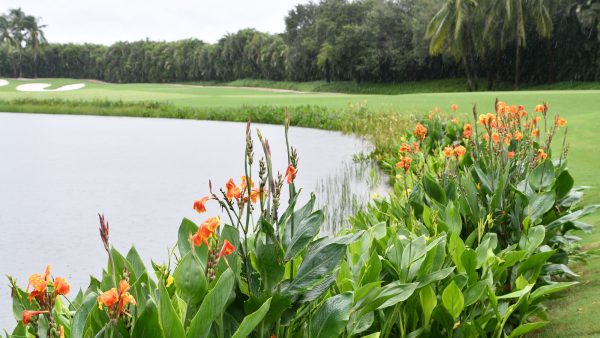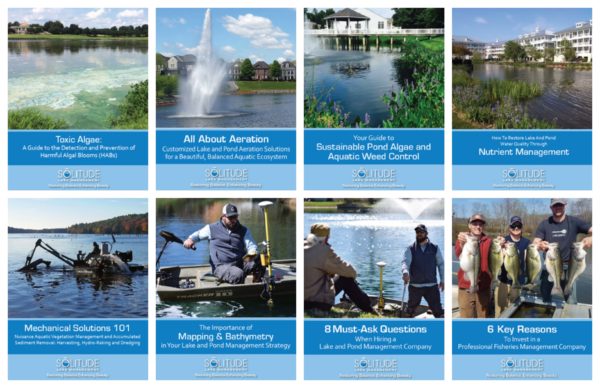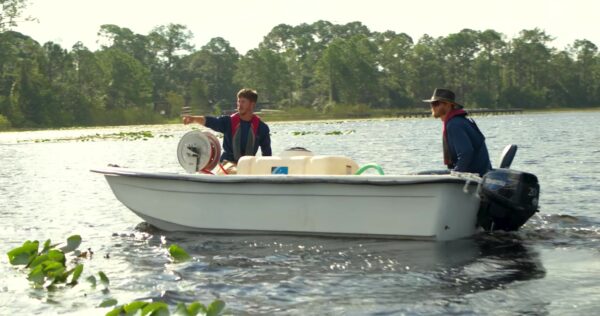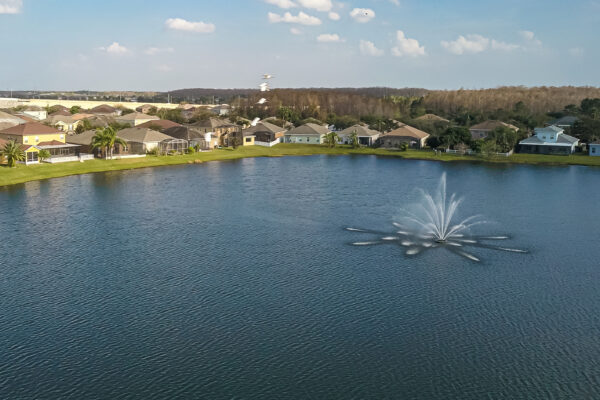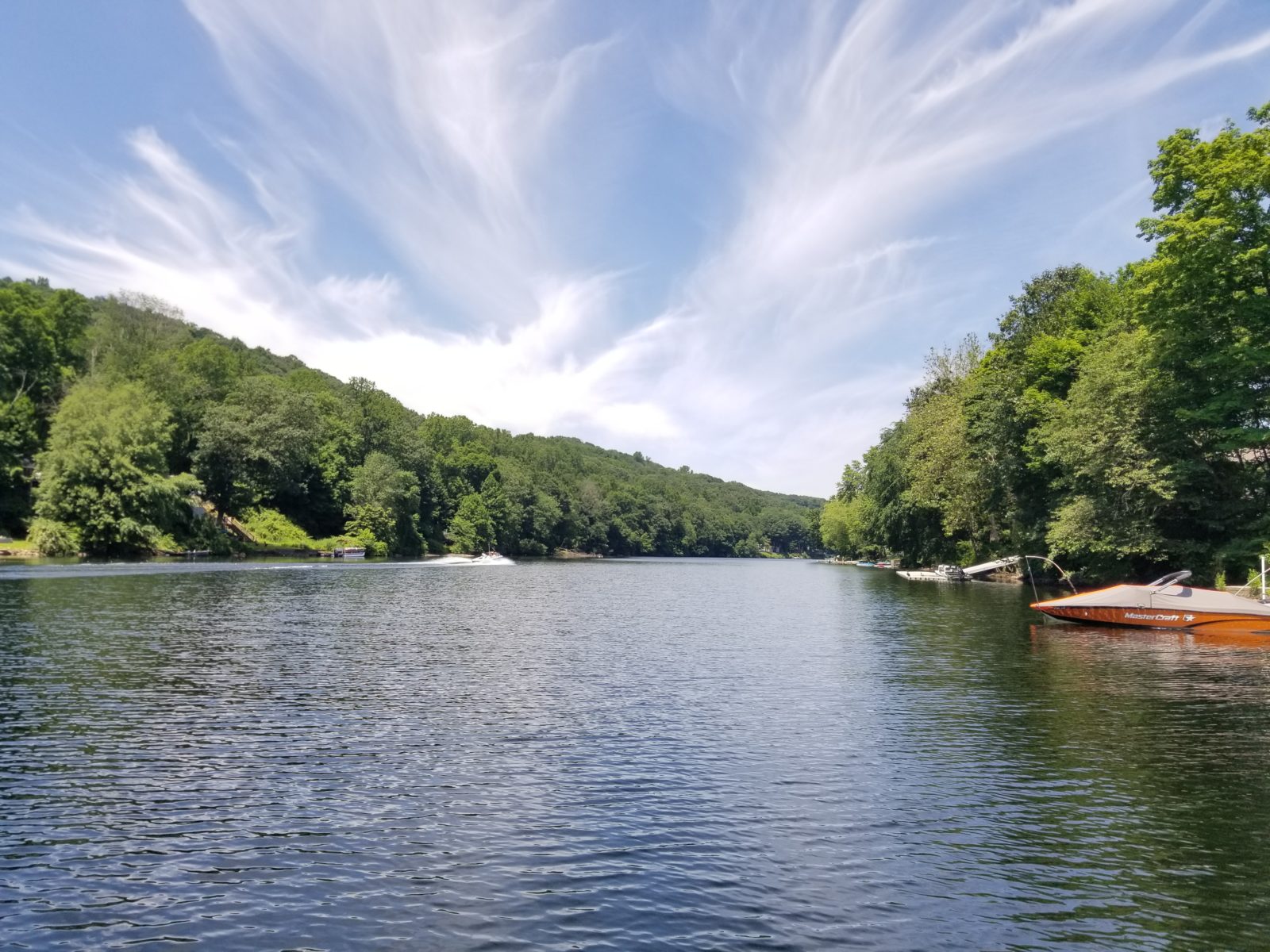
In addition to serving as a space for peace and natural solitude in the face of coronavirus (COVID-19), our lakes, ponds and wetlands are an investment. One of the best ways to enjoy and protect these essential resources is by ensuring the progress you have made towards your freshwater goals is not reversed. Ongoing proactive management through the upcoming spring and summer months will prevent serious and costly problems from developing that could be detrimental to the health of the waterbody, as well as the surrounding community:
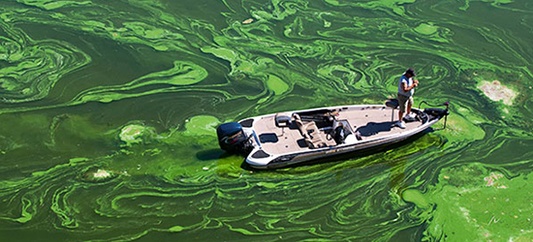
Prevent Harmful Algal Blooms
Harmful Algal Blooms (HABs) can occur in the water naturally, but have been a problem for decades due to the negative environmental impacts associated with mass urban development and pollution. In addition to interfering with recreation and threatening agriculture and drinking water resources, scientific studies support evidence that exposure to cyanotoxins may lead to the development of neurodegenerative diseases such as ALS, Alzheimer’s and Parkinson’s.
Halt Difficult Invasive Plant Infestations
Invasive weeds diminish the biological diversity of native plant life and destroy native habitats that insects, birds and mammals rely on for food and refuge. They can also interfere with recreation by clogging boat motors, tangling fishing lines and creating hazards that could drown swimmers. Without proper management, invasive species can cost municipalities, homeowners associations and taxpayers billions of dollars each year to effectively eradicate.
Eliminate Nuisance Mosquitoes and Midges
Mosquitoes carry many debilitating and deadly diseases, including Zika and West Nile Virus. Though mosquitoes often lay eggs in lakes and ponds, they can reproduce in very small bodies of water, including those that form in potholes, clogged gutters and even trash. Midges, the “cousin” of mosquitoes, don’t suck blood or transmit diseases, but they can be quite the nuisance by swarming lights and building exteriors. When large numbers die, they smell of dead fish.
Impede Dangerous Shoreline Erosion
Shoreline erosion is a common phenomenon, but over time it can lead to the formation of unsightly trenches, gullies and hazardous banks that may endanger community members and reduce property value. If erosion is not addressed, your lake or stormwater pond may experience native vegetation and habitat loss, nutrient loading, excess runoff and other complications that accelerate the rate at which your waterbody loses depth and volume.
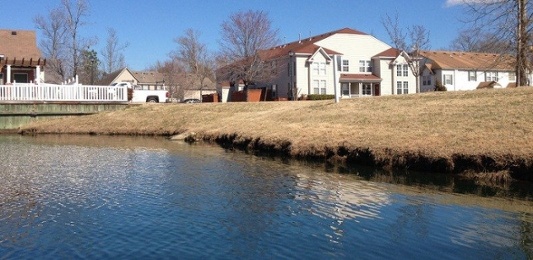
Avoid Costly Dredging
Accumulation of sediment on the bottom of your lake or pond is inevitable. However, the rate at which it accumulates is often within the control of the property owner. If proactive management is not observed, dredging may be necessary to restore valuable depth and volume to the water resource, thus preventing flooding, erosion, and dangerous structural problems. Dredging is one of the largest expenditures a pond owner will ever face, making it critically important to prolong and plan for the need for as long as possible through preventative maintenance.
Like our own health, the health of aquatic ecosystems is a delicate balance. SOLitude Lake Management, recommends implementing ongoing proactive management strategies to include regular water quality testing, aeration, shoreline erosion control, buffer management, and the insight of scientific experts who can help cultivate a healthy and long-lasting ecosystem. Ultimately, though, community awareness and education is key. By making ourselves and our neighbors more aware of the ways in which we all contribute to the health of our freshwater resources, we can begin making positive changes that help restore balance to nearby waterbodies. Together, we can ensure that they continue serving as spaces for peace, solitude and a deeper connection with nature when we need it most.
For more proactive management tips, visit SOLitude’s online Knowledge Bank, which homes an array of educational resources, including free informative guides, seasonal newsletters, educational articles, case studies and webinars.

